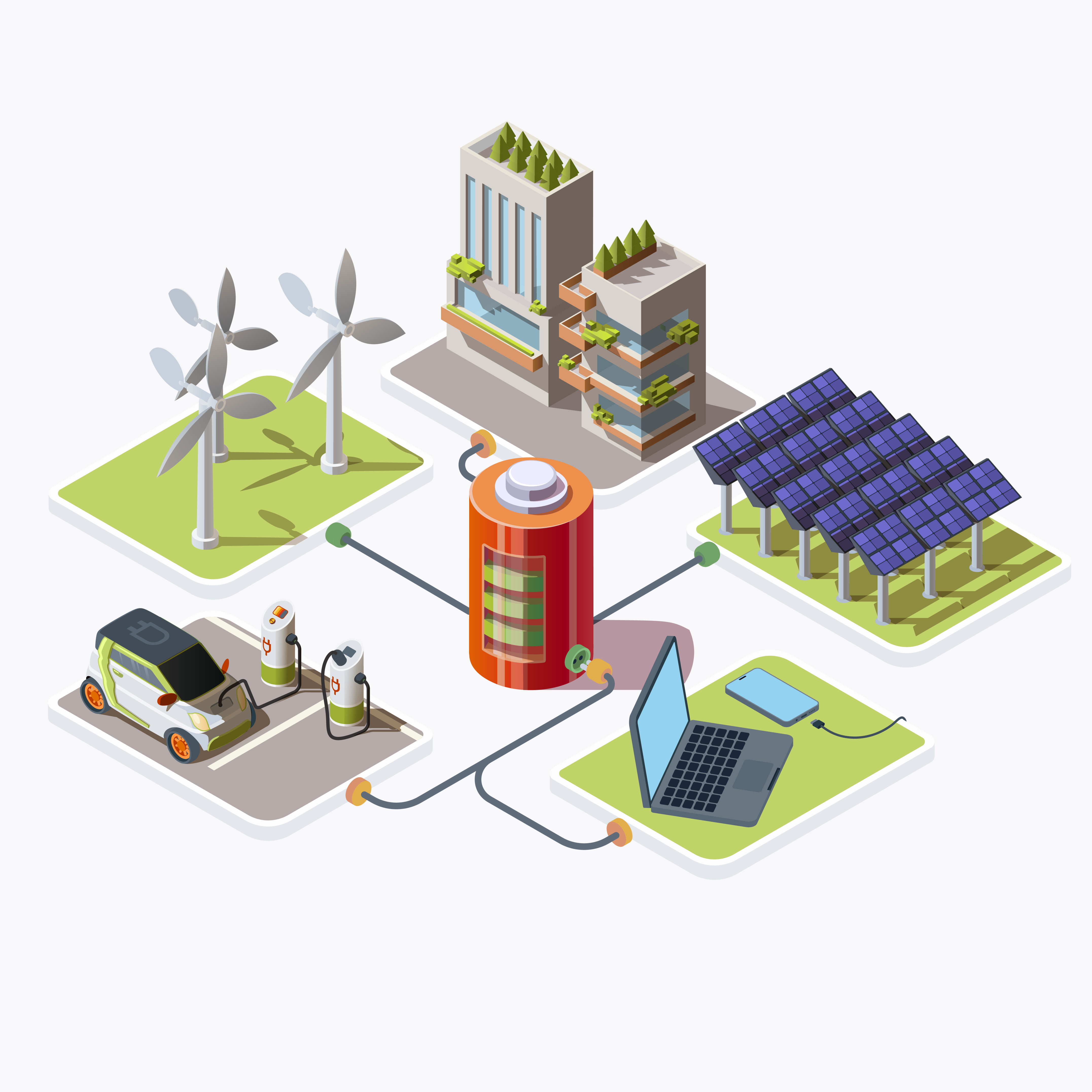Table of Contents
ToggleIntroduction
In an era of growing concern about environmental sustainability and the impacts of climate change, renewable energy sources like solar power have become increasingly popular. Solar panels, in particular, offer homeowners a way to harness clean, renewable energy from the sun and reduce their carbon footprint. In this article, we’ll explore five ways in which solar panels make homes more sustainable, from reducing carbon emissions to lowering energy bills and increasing property value.
Reduced Carbon Footprint
Solar panels play a significant role in reducing the carbon footprint of homes by generating clean, renewable energy without emitting greenhouse gases or other harmful pollutants. This section explores how solar panels contribute to a reduction in carbon emissions and combat climate change.
Solar panels harness the abundant energy of the sun through photovoltaic cells, converting sunlight into electricity without relying on finite fossil fuel resources. Unlike traditional electricity generation methods such as coal, oil, and natural gas, which release carbon dioxide (CO2) and other pollutants when burned, solar panels produce electricity cleanly and sustainably.
The transition to solar energy represents a crucial step in reducing carbon emissions and mitigating climate change. Fossil fuels are the primary drivers of global warming, accounting for the majority of greenhouse gas emissions worldwide. By replacing fossil fuel-based electricity generation with solar power, homeowners can significantly reduce their carbon footprint and help curb the impacts of climate change.
Climate change poses a grave threat to the environment, economy, and human health, with rising temperatures, extreme weather events, and disruptions to ecosystems becoming increasingly evident. Solar panels offer a solution to combatting climate change by providing a renewable alternative to fossil fuels, thereby reducing greenhouse gas emissions and promoting a cleaner, more sustainable future.
Solar panels contribute to climate change mitigation by:
Reducing dependence on fossil fuels: Solar energy reduces the need for fossil fuel-based electricity generation, which is a major source of CO2 emissions. Providing a sustainable energy source: Solar panels harness the sun’s energy, which is abundant, renewable, and environmentally friendly. Minimizing air pollution: Solar energy production does not release harmful pollutants or greenhouse gases into the atmosphere, improving air quality and public health.
Solar panels empower homeowners to achieve greater energy independence by generating their own electricity on-site, reducing reliance on the grid and traditional energy sources. This section delves into how solar panels contribute to energy independence and resilience during power outages or disruptions.One of the key benefits of solar panels is their ability to generate electricity directly from sunlight. Solar panels, also known as photovoltaic (PV) panels, convert sunlight into electricity through the photovoltaic effect, allowing homeowners to produce their own clean, renewable energy on-site.
By generating electricity from solar panels, homeowners can reduce their dependence on the grid for electricity supply. This is particularly advantageous in regions where grid electricity is unreliable or expensive. Solar panels provide a decentralized energy solution, allowing homeowners to generate power independently and consume it on-site. Solar panels offer a reliable source of backup power during power outages or disruptions. When coupled with battery storage systems or grid-tied inverters, solar panels can store excess energy generated during the day for use during nighttime or cloudy days, ensuring continuous access to electricity even when traditional power sources are unavailable.
Solar panels contribute to energy independence by:
Providing a reliable source of on-site electricity: Solar panels allow homeowners to generate their own power, reducing reliance on centralized energy sources and grid power.Enhancing energy security: Solar panels provide homeowners with greater control over their energy supply, reducing vulnerability to power outages or disruptions.Improving resilience: Solar panels coupled with battery storage systems offer a reliable backup power solution, ensuring continuous access to electricity during emergencies or grid failures.
Solar panels offer homeowners the opportunity to significantly lower their energy bills by generating their own electricity from the sun. This section explores how solar panels lead to reduced energy costs and long-term savings for homeowners.One of the most compelling reasons for investing in solar panels is the potential for significant cost savings on energy bills. By generating electricity from solar panels, homeowners can offset or even eliminate their reliance on grid power, leading to lower monthly energy bills.
While the upfront cost of installing solar panels may seem daunting, the long-term financial benefits far outweigh the initial investment. Solar panels have a lifespan of 25 years or more and require minimal maintenance, making them a cost-effective investment for homeowners looking to reduce their energy costs over time.In addition to the direct savings on energy bills, homeowners may also be eligible for financial incentives such as net metering, tax credits, and rebates. Net metering allows homeowners to earn credits for excess energy generated by their solar panels and fed back into the grid, further reducing their energy costs. Tax credits and rebates can offset the upfront cost of solar panel installation, making it more affordable for homeowners.
Solar panels contribute to lower energy bills by:
Generating electricity from a free and abundant energy source: Solar panels harness sunlight to generate electricity, reducing the need for grid power and associated energy costs.Providing long-term cost savings: Solar panels offer a reliable source of electricity with minimal ongoing costs, leading to significant savings on energy bills over the lifetime of the system. Offering financial incentives: Homeowners may be eligible for incentives such as net metering, tax credits, and rebates, further reducing the cost of solar panel installation and increasing the financial benefits.
Solar panels can enhance the curb appeal and marketability of a home, making it more attractive to potential buyers. In today’s real estate market, sustainability and energy efficiency are increasingly important factors for homebuyers, and solar panels can set a home apart from the competition. Studies have shown that homes with solar panels tend to sell for more and spend less time on the market than comparable homes without solar installations. According to a report by the Lawrence Berkeley National Laboratory, solar panels can increase a home’s resale value by an average of $15,000. This added value can more than offset the initial cost of solar panel installation, providing a significant return on investment for homeowners.
Installing solar panels is not just an investment in energy savings; it’s an investment in the future of the home. Solar panels can provide a steady source of income through energy savings and incentives while increasing the home’s overall value and marketability. As the demand for sustainable homes continues to grow, solar panels will become an increasingly valuable asset for homeowners.
Environmental Benefits
Traditional electricity generation methods, such as coal and nuclear power plants, require vast amounts of water for cooling purposes. Solar panels, on the other hand, require minimal water to operate, making them a more sustainable alternative for electricity generation, especially in water-stressed regions.
The combustion of fossil fuels for energy production releases harmful pollutants into the air, including sulfur dioxide, nitrogen oxides, and particulate matter, which contribute to air pollution and respiratory health problems. By replacing fossil fuel-based electricity generation with solar power, homeowners can help reduce air pollution and improve air quality in their communities.
Solar panels have a minimal environmental impact compared to traditional energy sources, which often involve habitat destruction, pollution, and ecosystem disruption. By harnessing clean, renewable energy from the sun, homeowners can help protect biodiversity, preserve natural resources, and promote ecological balance in their local environments.
Conclusion
Solar panels offer numerous benefits for homeowners looking to make their homes more sustainable. From reducing carbon emissions and lowering energy bills to increasing property value and promoting environmental conservation, solar panels are a valuable investment for homeowners committed to sustainability and energy independence. As the demand for clean, renewable energy continues to grow, solar panels will play an increasingly important role in shaping a more sustainable and resilient future for generations to come.
FAQs
How do solar panels make homes more sustainable?
Solar panels make homes more sustainable by generating clean, renewable energy from the sun, reducing reliance on fossil fuels, and lowering carbon emissions associated with traditional electricity generation.
Do solar panels help reduce energy bills?
Yes, solar panels can significantly reduce energy bills by generating electricity on-site and reducing reliance on grid power. Homeowners can enjoy long-term cost savings on electricity bills and may also be eligible for financial incentives such as tax credits and rebates.
Do solar panels increase property value?
Studies have shown that homes with solar panels tend to sell for more and spend less time on the market than comparable homes without solar installations. Solar panels can enhance the curb appeal and marketability of a home, leading to higher resale value.
What are the environmental benefits of solar panels?
Solar panels help reduce air pollution, conserve water resources, and promote ecological balance by replacing fossil fuel-based electricity generation with clean, renewable energy from the sun. Solar energy generation has minimal environmental impact compared to traditional energy sources.
How do solar panels contribute to energy independence?
Solar panels allow homeowners to generate their own electricity on-site, reducing reliance on the grid and fossil fuels. Solar panel owners can enjoy increased energy security and resilience during power outages or disruptions, as well as greater control over their energy consumption and costs.







